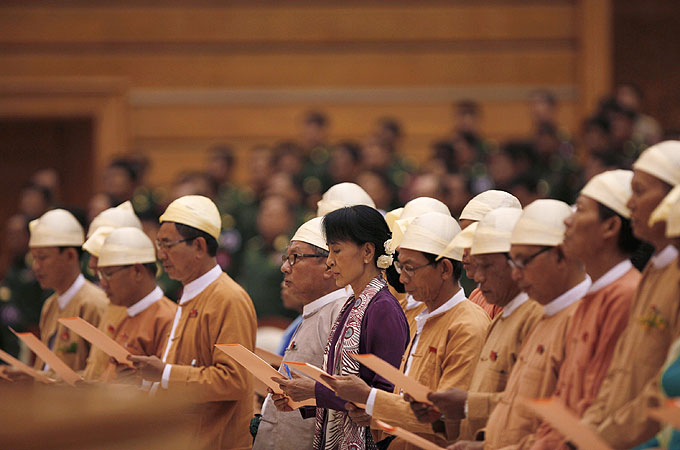Thirty year-old Ahmed (not his real name), is a Rohingya refugee. He
and other refugees fled to Malaysia by the dangerous sea route
frequented by Rohingya boatpeople, leaving from Bangladesh. They sought a
better life after more than 20 years living in squalid conditions in
small sheds in Bangladesh refugee camps, with no official status with
the UNHCR and Bangladesh authorities,
Ahmed was interviewed by Kaladanpress over the telephone from
Malaysia.
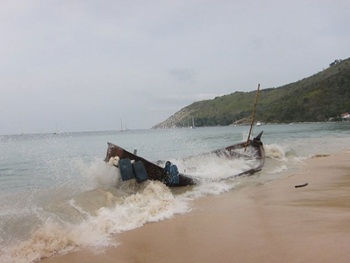
“I lived with my parents and wife in a small
shed at Nayapara, an official Refugee Camp under the supervision of the
UNHCR and the Bangladesh authorities,” he said.
“I got married at Nayapara camp on the first week of November 2010. I
left for Malaysia leaving my wife with my parents in the camp. I have
no children.”
He said he and sixty- five boatpeople from Nayapara and Kutupalong
camps left for Malaysia from Chittagong in the third week of October
2011 at about 11: pm.
“I gave 40,000 taka to a broker (agent) in Bangladesh to send me to
Malaysia or the Thailand border.”
Amhed managed to raise this money by selling his wife’s jewelry.
He had been hopeful for a good life abroad for he and other refugees
when the resettlement program was started by the United Nations High
Commissioner for Refugees (UNHCR) in 2006. Unfortunately, the
resettlement program was halted by the Bangladeshi authorities in 2010
for unknown reasons.
On the perilous journey out of Bangladesh they spent two days and two
nights drifting in the Bay of Bengal, in Bangladesh territorial waters,
because the boat engine gave them trouble.
The engine was finally repaired by a boatman who was one of the
leaders among the boatpeople, Ahmed said.
“We cooked rice ourselves in the boat, but we could not take a bath
because of the salt water.”
They took rations for 7 days, such as rice, Sura (flatted rice),
molasses, biscuits, dried fish, potato and water.
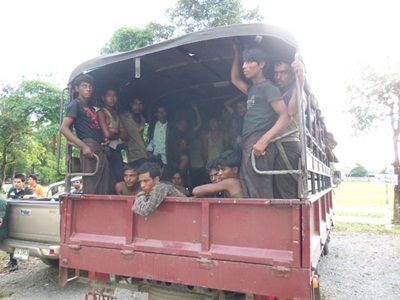
Unfortunately, they ran out of food after
being buffeted by strong winds off the coast of Thailand and floated
around for an extra 2 days.
After nine days, they reached the coast of Thailand at night. They
stayed one night in the jungle but didn’t know the name of place. They
didn’t have any food, Ahmed said.
“However, the next morning we were apprehended by Thai authorities
and sent to a police station for questioning. Thai police gave us food
at noon. We were kept one night in police custody,” another boatman
said.
“Police asked many questions, especially why we left from Burma and
Bangladesh.
We replied that the situation in Arakan State is not
good. The Rohingya people can’t move from one place to another without
travel passes, restrictions on movement, marriage restrictions, forced
labor, arbitrary arrest, extortion and being denied citizenship rights
by the military and government. The situation is also not suitable for
us in the Bangladesh refugee camps. The official refugee can’t go
outside of the camp without permission. We faced arbitrary arrest, and
were harassed by the camp authorities. So, we fled abroad for a better
life.”
The next day they were handed over to Thai immigration which sent
them back to Burma by boat, according to the boatman.
However, they were rescued by a fishing boat from Burma, which
brought them to the Malaysia-Thailand border, at Badam Musa, a main
border crossing into Malaysia, Ahmed said.
He and others crossed
into Malaysia from the border after giving Taka 90,000 to a broker.
Ahmed’s troubles are not over, however. He can’t work openly for fear
of arrest by the Malaysian government, because he is an illegal
immigrant. He applied to the UN office at Kula Lumpur for refugee
status, recently.
According to sources, many unofficial refugees from Leda (Tal) and
Kutupalong makeshift camps also went to Malaysia.
A village elder from Arakan State said many Rohingya youths, between
13 and 20, went to Malaysia from the villages of Myint Hlut and Aley
Than Kyaw of Maungdaw Township, as well as other villages, by boat and
many boatpeople died in the Bay of Bengal on the way.
The village elder also said the Rohingya people hoped the situation
in Burma’s northern Arakan State would be changed after the 2010
elections. However, human rights abuses and discrimination are going on
against the Rohingya people, so the situation is actually becoming worse
day-by-day there. As result, Rohingya people continue to leave their
motherland.
According to different sources, many Rohingya boatpeople were
arrested by Thai authorities since August 2011. Mostly, they were
released.
In 2007 and 2008, almost 5000 men and boys from Burma’s Rohingya
Muslim minority landed on Thailand’s shores, prompting a change in
policy to try to prevent such a large influx from occurring again.
Revelation of the push-back policy, in which Thai authorities
apprehended Rohingya boatpeople, then towed them back out on the open
sea in secrecy, shocked observers. That inhumane treatment was brought
to a swift end after journalists, working with the Hong Kong-based
South China Morning Post newspaper, exposed what was happening.
Ahmed would like to urge the Malaysian government not to arrest
oppressed Rohingya people and other ethnic minorities who left their
motherland because of discrimination and human rights abuses against
them by the military-controlled government in Burma. He also urges the
UN to provide refugee status in Malaysia to illegal Rohingya people as
early as possible, to guarantee their safety.
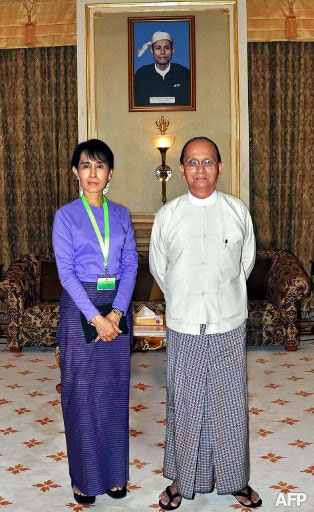



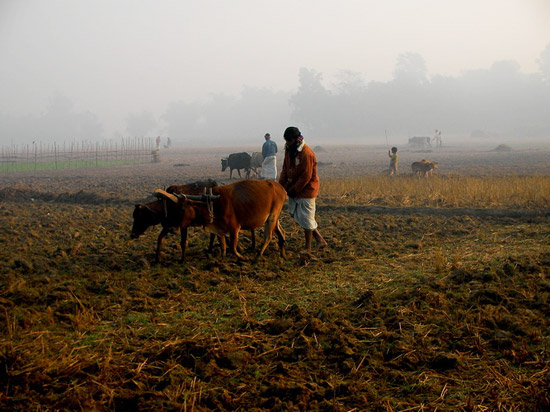
 “I lived with my parents and wife in a small
shed at Nayapara, an official Refugee Camp under the supervision of the
UNHCR and the Bangladesh authorities,” he said.
“I lived with my parents and wife in a small
shed at Nayapara, an official Refugee Camp under the supervision of the
UNHCR and the Bangladesh authorities,” he said. Unfortunately, they ran out of food after
being buffeted by strong winds off the coast of Thailand and floated
around for an extra 2 days.
Unfortunately, they ran out of food after
being buffeted by strong winds off the coast of Thailand and floated
around for an extra 2 days.


